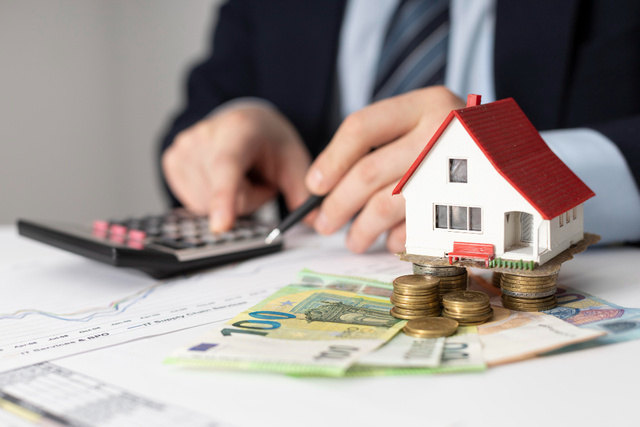Are you a small business owner eyeing commercial real estate? Learn how a Small Business Administration (SBA) loan can turn your dreams into reality.
The SBA provides two main loans for real estate: the SBA 504 and the SBA 7(a). These loans help with buying or enhancing property, constructing new buildings, and updating existing ones. They’re great for businesses with little capital thanks to low down payments and long repayment times.
Wondering about an SBA loan for commercial property investment? We’ll help you grasp their essentials, from choosing the right one to understanding their perks for property investment.
Key Takeaways:
- SBA loans help small business owners invest in commercial real estate.
- The SBA 504 loan is perfect for real estate, with longer payback times and smaller initial payments.
- The SBA 7(a) loan works for various needs, including real estate.
- Both loans have unique requirements, terms, and rates. Knowing these is vital before deciding.
- Major banks and local lenders offer SBA loans. It’s important to shop around for the best deal for your business.
SBA 504 Loans for Real Estate Investing
The Small Business Administration (SBA) offers the SBA 504 loan program. It helps small businesses buy commercial real estate. You can use these loans to purchase or construct owner-occupied buildings, renovate properties, and finance long-term projects. With the SBA 504 loan program, small businesses can get good loan terms and the capital they need to grow.
Loan Terms and Conditions
SBA 504 loans can go up to $5 million. They fit small and mid-sized businesses. The loan involves three parties: a development company, a third-party lender, and the borrower. Loan terms can be 10 to 25 years, giving borrowers enough time to repay. Moreover, these loans have fixed rates of 3.5% to 4% per year, offering stability for borrowers.
Costs and Eligibility
It’s important to consider the costs of SBA 504 loans. Costs include application and loan origination fees, plus other charges. Yet, with low interest rates and long repayment terms, these loans are still affordable for small businesses.
To qualify for an SBA 504 loan, businesses must meet specific criteria. They should be profit-making, able to repay the loan, and have a solid business plan. The SBA encourages working with big banks, local lenders, and financial institutions that offer these loans to small businesses.
Benefits of SBA 504 Loans
Small businesses gain a lot from SBA 504 loans:
- They can buy commercial real estate for their business to grow.
- Loan terms are favorable, with long repayment periods.
- These loans have lower down payments than regular loans.
- Interest rates are fixed, providing stability.
- There’s an SBA guarantee, making approval more likely.
Using an SBA 504 loan, small business owners can grow their operations. They get the real estate they need for their businesses to flourish.
| SBA 504 Loans | Details |
| Loan Amount | Up to $5 million |
| Loan Terms | 10-25 years |
| Interest Rates | 3.5% – 4% annually |
| Closing Costs | Application fees, loan origination fees, and other administrative or closing costs |
| Eligibility Criteria | For-profit business, ability to repay the loan, and a well-structured business plan |
| Benefits | Opportunity for business expansion, favorable loan terms, lower down payment requirements, fixed interest rates, and increased likelihood of loan approval |
SBA 7(a) Loans for Real Estate Investing
The SBA 7(a) loan helps small businesses invest in real estate. It covers purchasing and enhancing properties, funding land leases, and buying equipment. These loans, backed by the Small Business Administration (SBA), are offered through participating lenders.
These loans come with long-term benefits, lasting 10 to 25 years. The amount you can borrow depends on collateral and how creditworthy your business is. Their interest rates are between 6% to 13%, making them a cost-effective choice for businesses.
To get an SBA 7(a) loan, there are certain rules. For existing projects, you must use over half of the property. For new ones, it’s 60%. A down payment of 10% is generally needed. You can pick from banks, online lenders, or credit unions. But, it’s crucial to shop around. Compare rates, fees, and terms to find the best option for your real estate goals. Sites like Loanbud.com are sba approved, and make the process of applying and securing your funding fast and easy.

